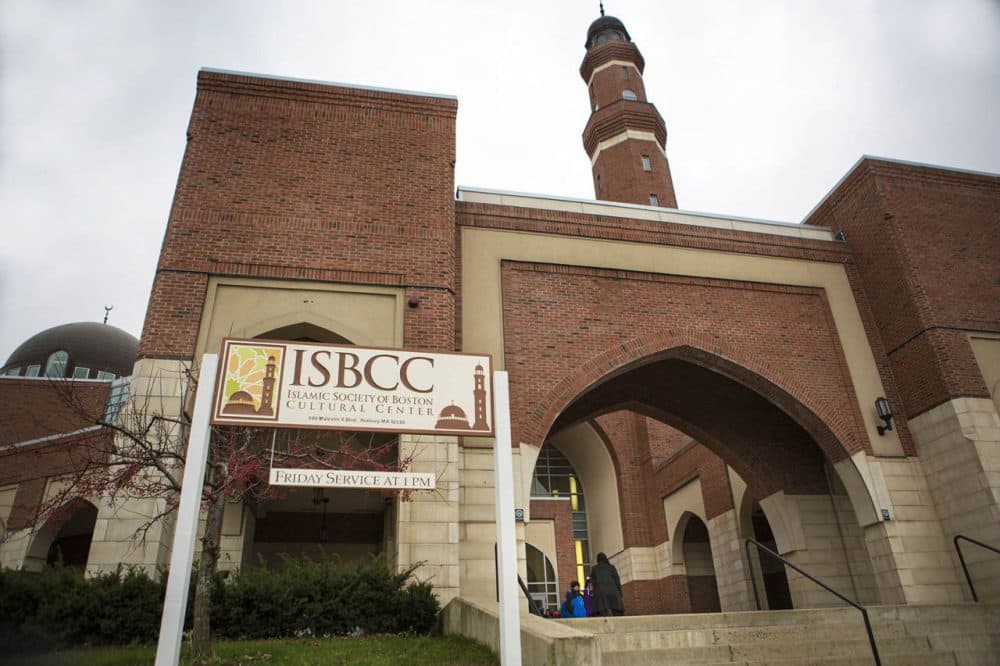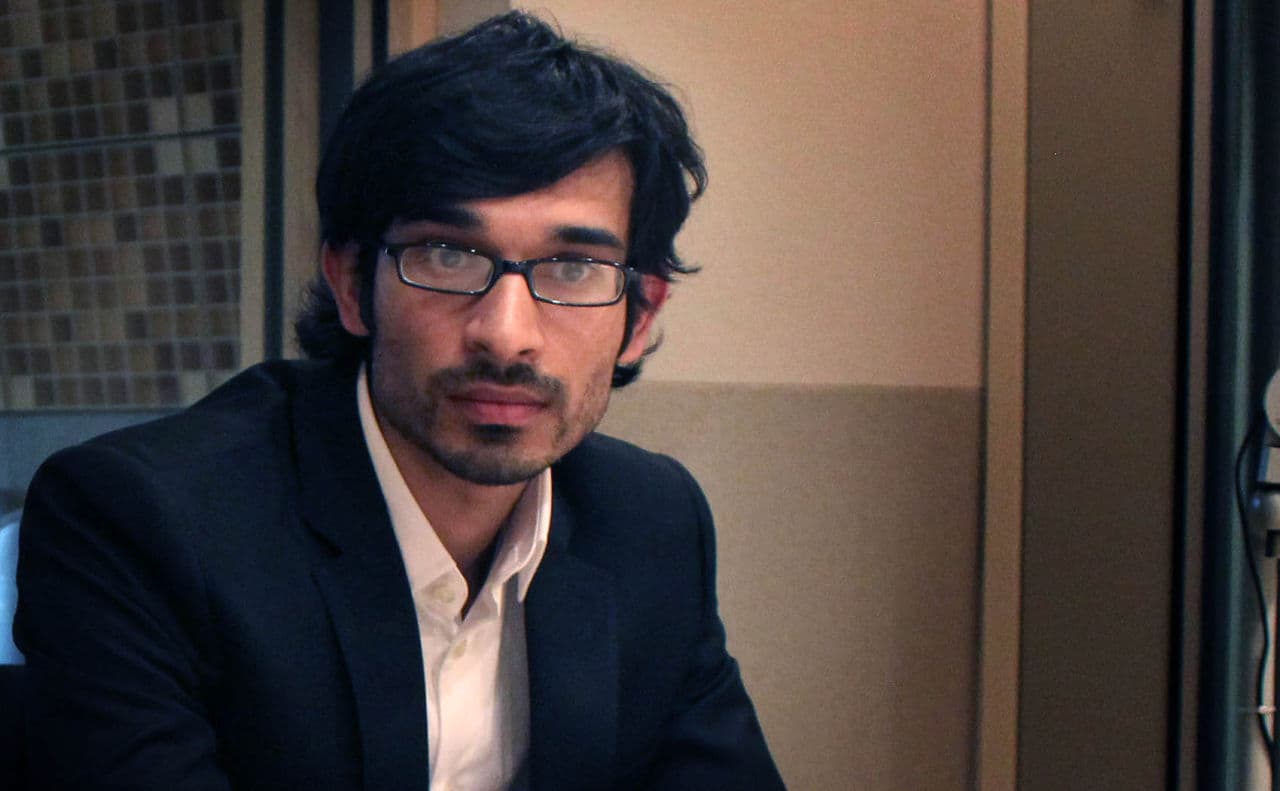Advertisement
'Rhetoric Matters': Locals React To Trump's Call To Ban Muslims

Republican presidential candidate Donald Trump's call to block all Muslims who are not already U.S. citizens from entering the country is prompting reactions from concern to fear among American Muslims here.
Leila Alaoui was at the Islamic Society of Boston Cultural Center on Tuesday because of something her second grade son said to her several days ago.
"So we were driving and he says to me, 'Mama, please vote for the woman. Don't vote for the guy,' " Alaoui recalled.
The woman was Hillary Clinton. The guy was Donald Trump.
"Really, that thing just shocked me," Alaoui said. "I had no answer. The only thing that I can think about that minute, I wish I was prepared for that question. I was not."
"There are times when I think it feels better to think what [Donald Trump] says really doesn't matter, but we know that it does ... Rhetoric matters."
Waheeda Saif
This was before Trump's latest remarks, but even then, her second-grader had concerns about what he heard about Trump in the schoolyard. Alaoui says her son's comments prompted her to attend a talk at the mosque on Tuesday, titled "Talking to Your Child about the Current Climate and Islamophobia." The talk was planned before Trump's latest statement.
Alaoui emigrated to the U.S. from Morocco 16 years ago. She's an American citizen now. When she was growing up in Morocco, Alaoui says, she used to hear a lot of stories about racism in France, where many Moroccans emigrated.
"But for America to do this?" Alaoui asked. "This is what's shocking me. This is something that never been like that."

"Mosques are really not the problem," said the center's executive director, Yusufi Vali. "Where community happens is not the problem."
Trump's rhetoric concerns Vali. But Sunday night, President Obama also said something that Vali believes could be misunderstood.
"Muslim leaders here and around the globe have to continue working with us to decisively and unequivocally reject the hateful ideology that groups like ISIL and al-Qaeda promote," the president said during an Oval Office address, "to speak out against not just acts of violence, but also those interpretations of Islam that are incompatible with the values of religious tolerance, mutual respect, and human dignity."
Vali has worked at the mosque for three and a half years.
"And not once have I come into contact with anyone seriously engaging any extremist ideology," Vali said. "Because at least in the American case, it's typically people that are lone wolves and are very isolated and pretty marginalized."
Advertisement
The talk about how to talk to your child about Islamophobia was led by mental health counselor Waheeda Saif. The talk was closed to the press. Afterward, Saif said Trump's proposal to ban all non-American Muslims from entering the country does not address the problem of terrorism because ISIS has very little to do with Islam.
"They certainly use religion, because it's easy to use religion, but their tactics are no different than pedophiles on the Internet, or gang recruitment," Saif said. "They prey on kids, when I say kids I mean even young adults, who are vulnerable. They're already trying to fill a hole in their life, or they're feeling disconnected or disenfranchised for whatever reason. And those are the easy prey, those are the ones they go after. They're not going after the really well-adjusted kids because those kids know better."
In the past, when Trump said anything about Muslims, Saif had a very American reaction: humor.
"So Donald Trump is interesting. I think all of us in the beginning discounted him as another comical figure. No one really put any stock in him," Saif said. "And there are times when I think it feels better to think what he says really doesn't matter, but we know that it does, because history tells us that it does. History shows us over and over again that words matter. Rhetoric matters."
Saif says now that humor is being replaced by fear.
This segment aired on December 8, 2015.
